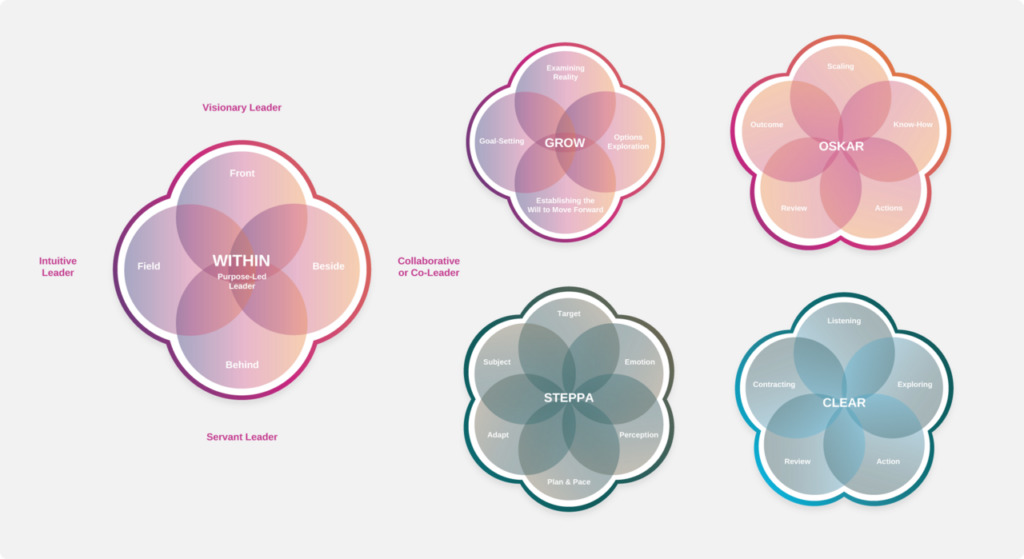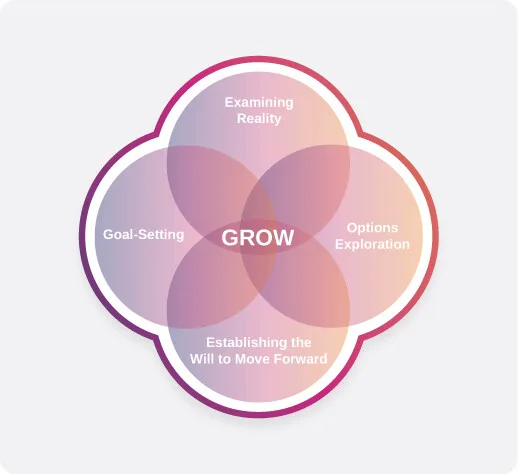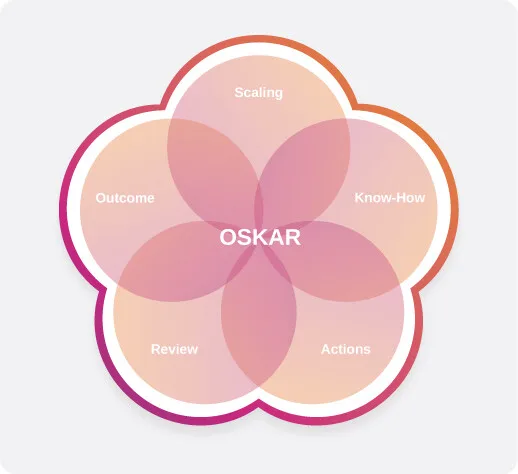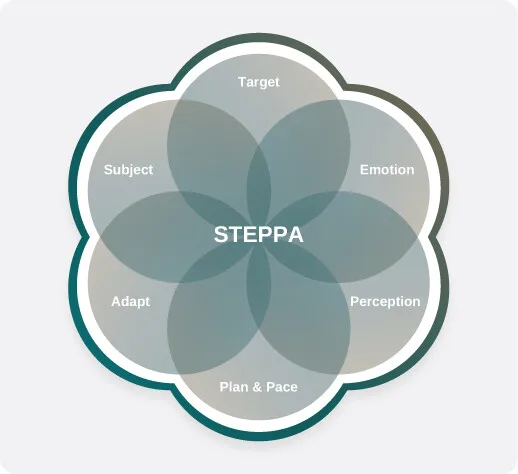Pursuing a career in coaching can be a fulfilling path that empowers others and provides you with personal and professional growth. Whether you are wondering how to become a life coach or exploring other niches, this step-by-step guide will help you navigate the process of becoming a coach and building a thriving coaching career.
Get Started with Co-Active Coaching Fundamentals
Understanding the Basics of Coaching
Coaching is a collaborative process that helps individuals achieve their goals, overcome challenges, and unlock their potential. Coaches guide clients through self-discovery to foster personal growth and enhance engagement and performance in various aspects of life.
In today’s fast-paced world, the coaching career has become highly sought after, with opportunities in varied niches like life, leadership, and wellness coaching.
The Role and Responsibilities of a Coach
Coaches play a pivotal role in:
- Goal setting and clarity: Helping clients define and achieve their objectives.
- Fostering self-awareness: Encouraging clients to understand their strengths and areas for improvement.
- Facilitating personal development: Providing tools and strategies for growth.
- Enhancing performance: Supporting clients in reaching peak productivity.
- Increasing motivation and resilience: Building mental strength and focus.
- Promoting well-being: Encouraging a balanced and healthy approach to life.
By mastering these responsibilities, coaches inspire ongoing and lasting change in their clients’ lives.
Register for Our Coaching Fundamentals Course
Step-by-Step Guide to Becoming a Coach
Step #1: Choose Your Coaching Niche
Selecting the right niche is a crucial first step. Your niche surrounds the problems you want to help people solve and the solutions you want to help them discover. Here’s how to decide:
- Identify the problems you are passionate about solving. Explore different niches like career, life, leadership, or health and wellness coaching.
- Reflect on your personal experiences and expertise. What transformations have you experienced that you could help others with?
- Consider market demand and client needs.
For example, health and wellness coaching might be perfect if you enjoy helping people identify unhealthy habits and develop healthier ones. Choosing a niche for your coaching career enables alignment with your passion with a viable career path.
Step #2: Figure Out Who You Want to Work With
Defining your target audience — or ideal client — is essential for customizing your services.
- Individual clients: These include people seeking personal growth or life transitions.
- Businesses and companies: Organizations may require leadership coaching or team development services.
Understanding your audience allows you to customize your coaching approach and meet specific needs effectively.
Step #3: Acquire Essential Skills
No matter the niche you choose or the ideal client you serve there are essential skills that apply. Successful coaches possess a range of skills, including:
- Communication: Convey clear ideas and strategies.
- Empathy: Understand and connect with clients’ emotions.
- Active listening: Fully engage with clients to grasp their concerns.
- Powerful questioning: Prompt insightful reflections and solutions.
- Emotional intelligence: Navigate interpersonal dynamics effectively.
- Constructive feedback: Offer actionable and supportive advice.
- Trust building: Create a safe, judgment-free environment.
Each of these skills enhances your ability to guide clients toward success.

Step #4: Invest in Coaching Programs and Certifications
Certifications and professional training are vital for learning how to become a coach, building your confidence and strategies, and establishing credibility. Here are some angles to consider:
- Education: Degrees in psychology, sociology, or related fields can be beneficial.
- Certifications: Professional certifications like ACC (Associated Certified Coach), PCC (Professional Certified Coach), or MCC (Master Certified Coach) demonstrate your knowledge and expertise.
- The International Coaching Federation (ICF) is recognized as the global leader for high standards in coaching credentials.
- The Center for Credentialing and Education (CCE) offers several levels of credentials and continuing education for coaches.
- The International Association of Coaching (IAC) offers two levels of credentials.
- The National Board for Health and Wellness Coaching (NBHWC) offers niche-specific training and credentialing.
Co-Active Training Institute provides ICF-accredited programs that equip aspiring coaches with practical skills and methodologies. We have trained coaches for over three decades using our proven Co-Active Coaching Model, empowering thousands of people globally to build coaching careers and provide transformations for individuals, businesses, and organizations.
Learn More About Co-Active Coach Training
Step #5: Learn and Develop Coaching Methodology
A structured coaching methodology or framework ensures effective coaching. Common models include:
Co-Active Model: Emphasizes collaboration and holistic growth.
GROW: Focuses on goal-setting and action planning.

OSKAR: Centers on solution-focused coaching.

STEPPA: Integrated emotional intelligence with strategic planning.

CLEAR: Focuses on creating deep transformation.

Using these models allows you to tailor your approach to each client’s needs.
Step #6: Develop a Coaching Practice
Once you have decided on your niche and ideal client and have been trained and certified, you are ready to begin your business. Starting your coaching career requires hands-on experience. Consider:
- Offering free sessions to friends, family, or colleagues to practice.
- Joining coaching groups to learn from peers.
- Collaborating with mentors or supervisors for guidance.
- Leveraging technology, such as video calls and digital tools, to facilitate sessions.
These practices help you refine your skills in a lower-pressure environment.
Step #7: Market Your Coaching Services
Coaches need clients. Building a successful coaching business involves effective marketing to find those people you want to work with. Key steps to market your services include:
- Personal branding: Define your unique value proposition and messaging.
- Pricing strategies: Research industry standards and set competitive rates.
- Networking: Attend events and seek referrals from current clients.
- Online presence: Use social media, websites, and blogs to attract new clients.
An engaging online presence can significantly enhance your visibility and credibility.
Step #8: Keep Developing and Measuring Your Growth
Continuous learning, development, and improvement are essential for long-term success. Keep being a learner and implementing new strategies. You can consider:
- Evaluating coaching effectiveness through client feedback.
- Analyzing business metrics to track financial growth.
- Investing in personal and leadership development to stay ahead in the industry.
- Gathering testimonials to build trust and attract new clients.
Continually tracking progress and remaining flexible to change ensures your coaching practice remains impactful and relevant.
Become a Coach With Co-Active Training Institute
Embarking on a coaching career is a transformative journey that offers personal fulfillment and professional success. By following this step-by-step guide about how to become a coach, you’ll be prepared to navigate the path.
Ready to take the first step? Learn Co-Active’s renowned coaching method and kickstart your journey into a rewarding coaching career.

